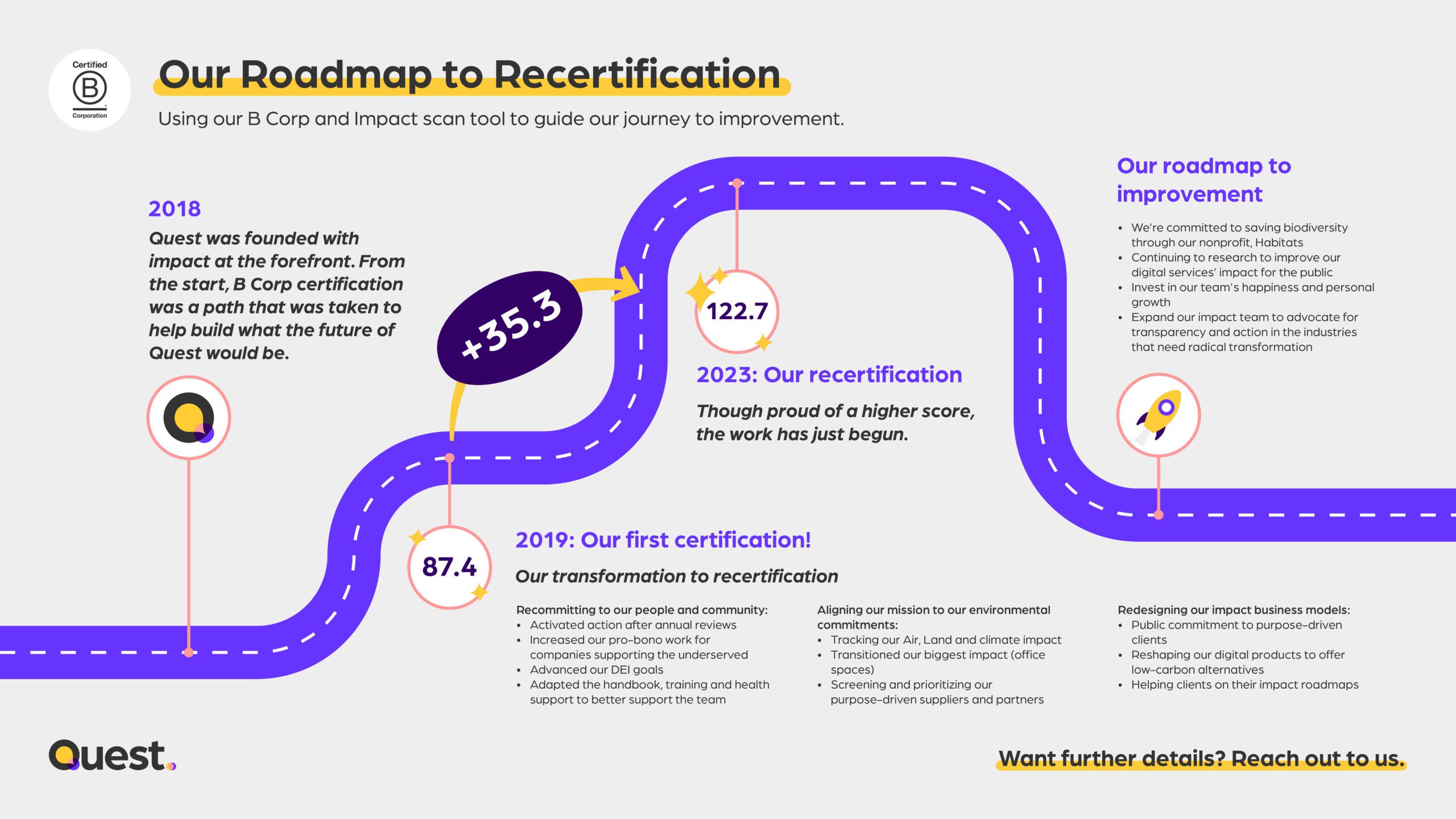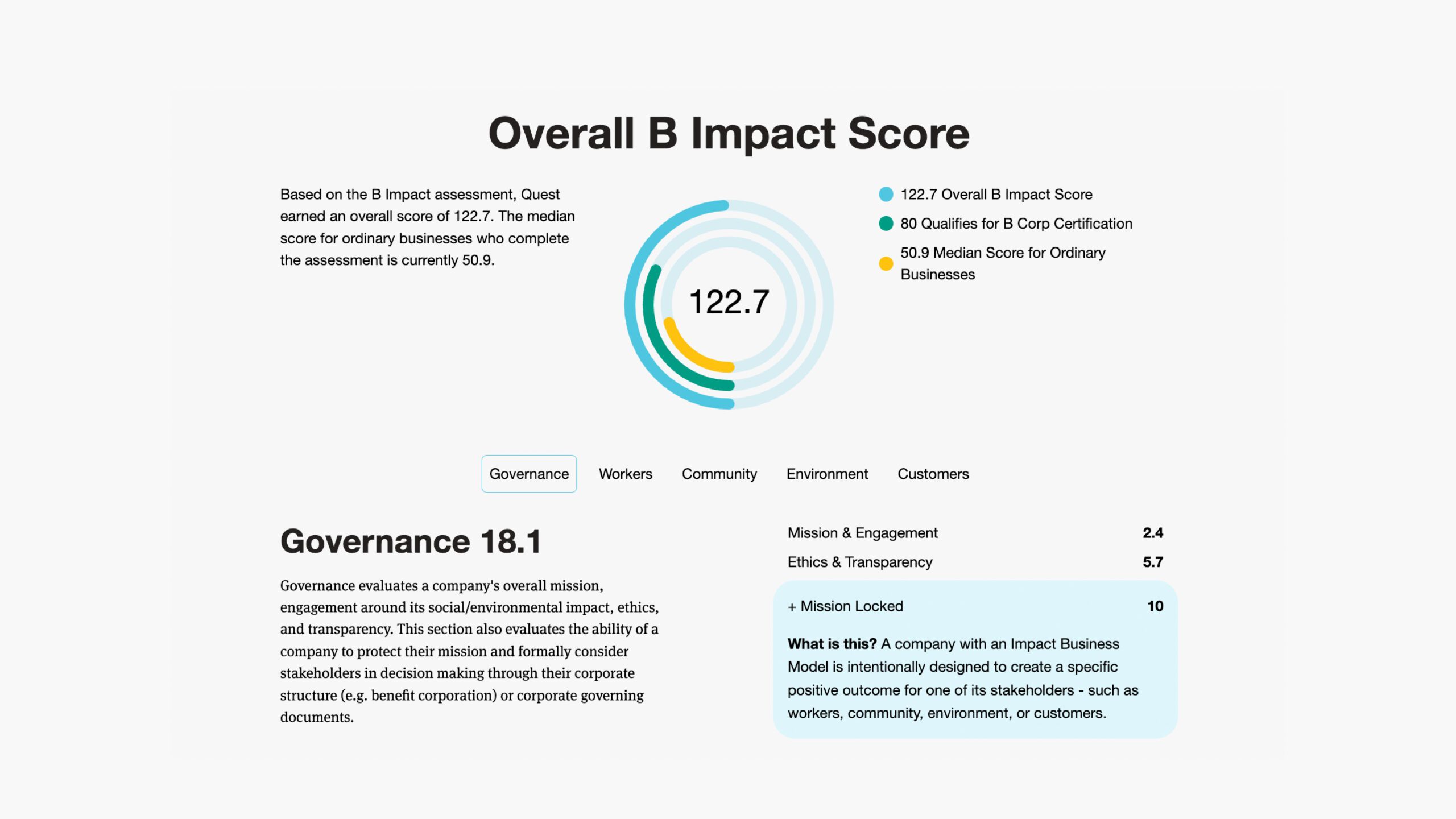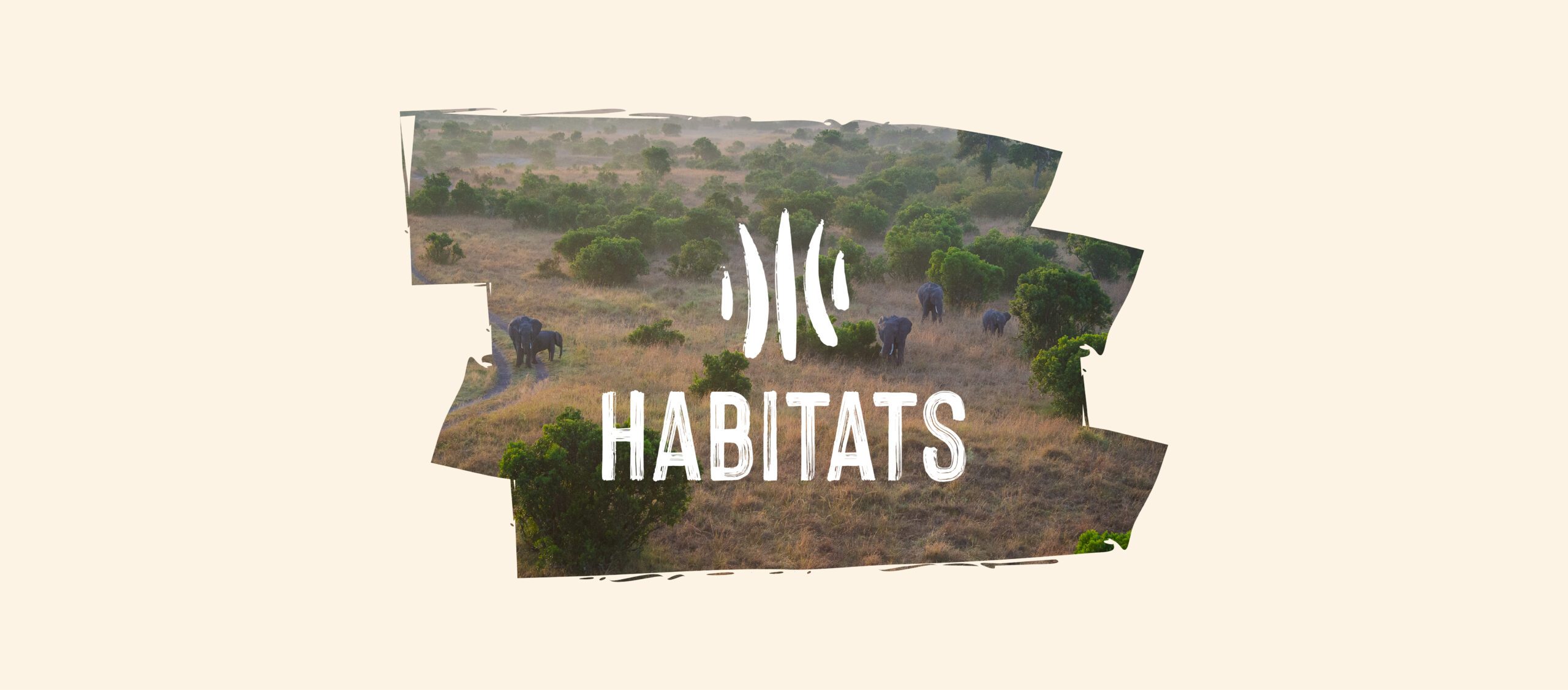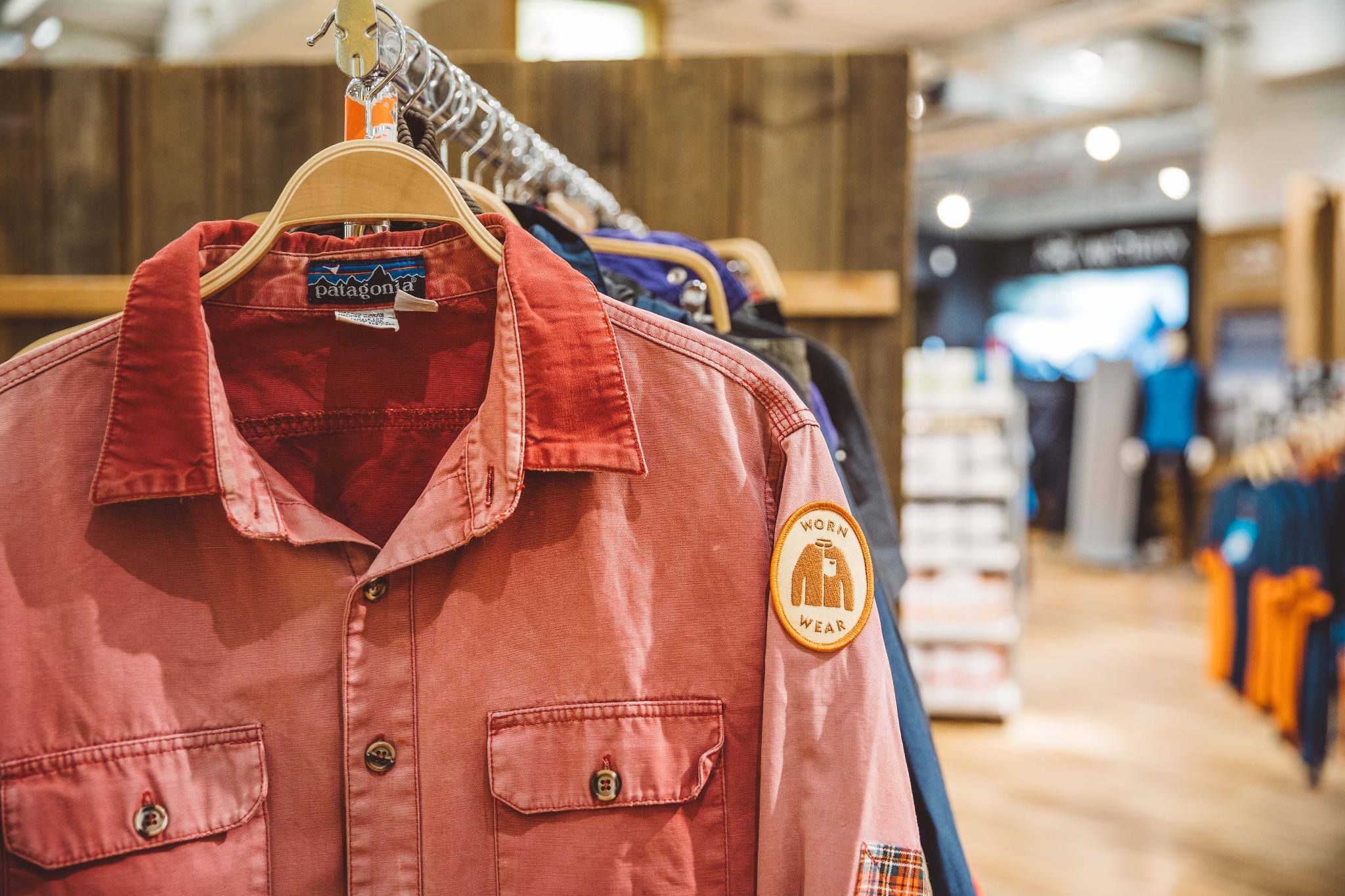Page content
Quest Studio’s B Corp Journey
From its inception, Quest Studio set its sights on the B Corp certification as it embodies everything this company was to stand for. As an impact consultancy, we recognize the crucial need for systemic change and our role within it. Becoming a B Corp wasn’t just a goal—but a reflection of ourselves and the change we want to lead.
When we first approached the certification in 2019, we earned a certification score of 87.4.
By following the B Impact Assessment, we learned much about our organization’s potential for impact, and ultimately, this framework led to a strong foundation for our future. Yet, as we always say, the certification is only the beginning of this impact journey.
Fast forward to this year, we recertified with a score of 122.7!
We’re not here to boast about our 35-point increase (although we’re proud). What we truly want to celebrate is the improvement our impact journey led and the lessons we learned along the way.

B Corp Recertification Journey
Like our first certification journey, we started auditing our direct and indirect impact alongside our gaps. To do so, we created our own Quest Impact Scan. Inspired by the B Impact Assessment, SDGs, and the GRI framework, we measured and evaluated negative and positive impacts across employees, environment, community, governance, and suppliers to gain insights into areas of strength and areas for improvement.
After measuring our holistic impact, it was time for a materiality assessment to determine the priority areas we could and should further commit to as a team.
These two tools became the input for our Impact Roadmap – full of actionable quick wins and short and long-term impact strategies. Our roadmaps are ever-evolving, constantly adapting to the changing sustainability landscape, and guided by the ultimate aim of fostering a genuine, long-term commitment to sustainability, partnership, and positive impact.

Looking to transform your impact strategy?
Whether you’re starting out measuring your impact, certifying as a B Corp, or ready to start impact reporting, we can help!
Building Impact Business Models
We can write a book of all the steps we took to recertify, instead, we wanted to focus on the power of Impact Business Models (IBMs).
IBMs are one of the three aspects evaluated in the B Impact Assessment, measuring how intertwined social and environmental performance is with the way you do business. Qualifying for an IBM can be challenging, with most certified B Corps having 0-2 IBMs. Earning credit in an IBM is difficult, and having three or more applicable IBMs is extremely rare.
Since day one, our core policy has always been to provide our expertise only to the “right” customers and projects—those who ignite positive change. Why? Impact-driven businesses play a crucial role in transforming business as usual. By partnering with those committed to driving positive impact, we contribute to enhancing and growing the impact space.
Though we were always a mission-locked organization that focused on supporting purpose-driven organizations, we wanted to look at the lifecycle of our organization and our services. Given that we are mainly service-based, we evaluated the negative impact of our only ‘product,’ digital design, and websites.

Realizing that about 2% of global greenhouse gas emissions come from the internet every year, we needed to push our digital sustainability efforts.
With transformation and a lot of learning, we prioritized responsible development to minimize negative impacts and ensure the long-term viability of all our digital design services. It’s not just about reducing the carbon footprint of our digital strategies and products, but also about ensuring accessibility and inclusivity for everyone. This commitment has earned us our third IBM. As they say, good things come in threes, and we couldn’t agree more.
Learn about all the details of our recertification here!

Looking for support in your B Corp journey?
As a certified B Corp and trained B Leaders, we can help you foster an ongoing commitment to sustainability through the B Corp certification and beyond.
The future of our impact roadmap
The B Corp movement is all about driving transformational change. As a certified service provider, we continually ask ourselves: how can we make a bigger impact through our work?
After we finished our original certification, we began conducting extensive research on CO2 neutrality and Net Zero to explore how we could create a tangible impact through our climate-neutral journey.
The truth is, for a small company like Quest, obtaining a CO2-neutral label would be a manageable feat. However, we realized that while it might enhance our marketing efforts, it won’t significantly improve our overall impact.

Instead of using our financial resources for a mere badge of approval, we have decided to invest in what truly matters: saving biodiversity. We proudly partnered and launched Habitats, a non-profit organization dedicated to long-term structural solutions for climate change and biodiversity degradation.
Could Habitats be our ticket to a fourth charitable giving IBM in our 2026 recertification? Probably not. In the meantime, we have been busy leveraging our branding, marketing, and fundraising expertise to make Habitats punch a bit above its weight right from the start.
What we are focusing on is bringing systemic change in the biodiversity conservation and restoration space. Check out Habitats now!


